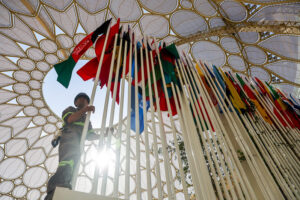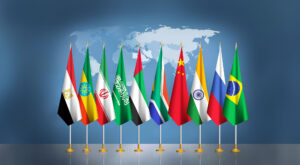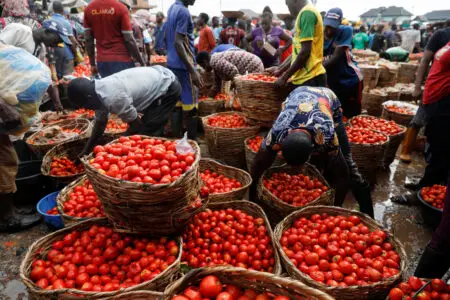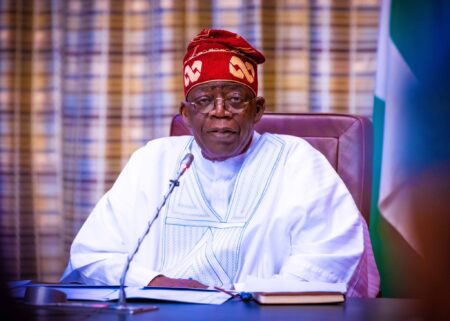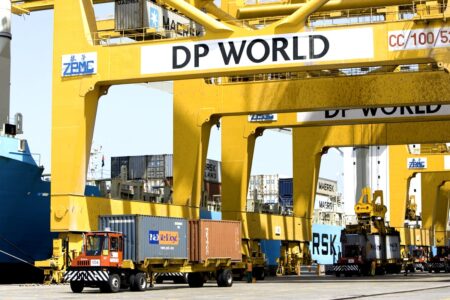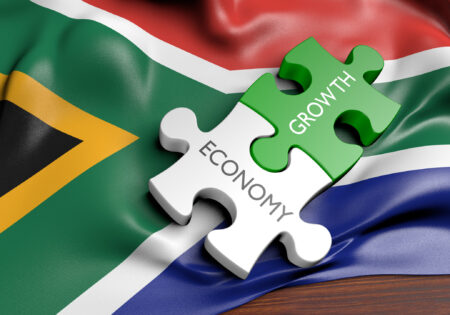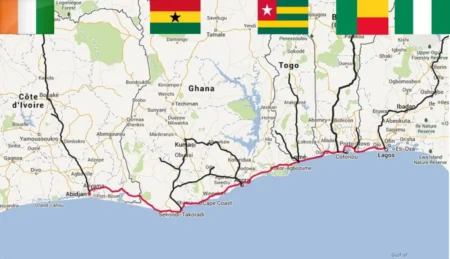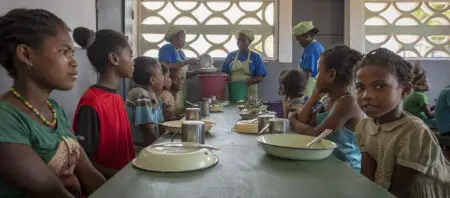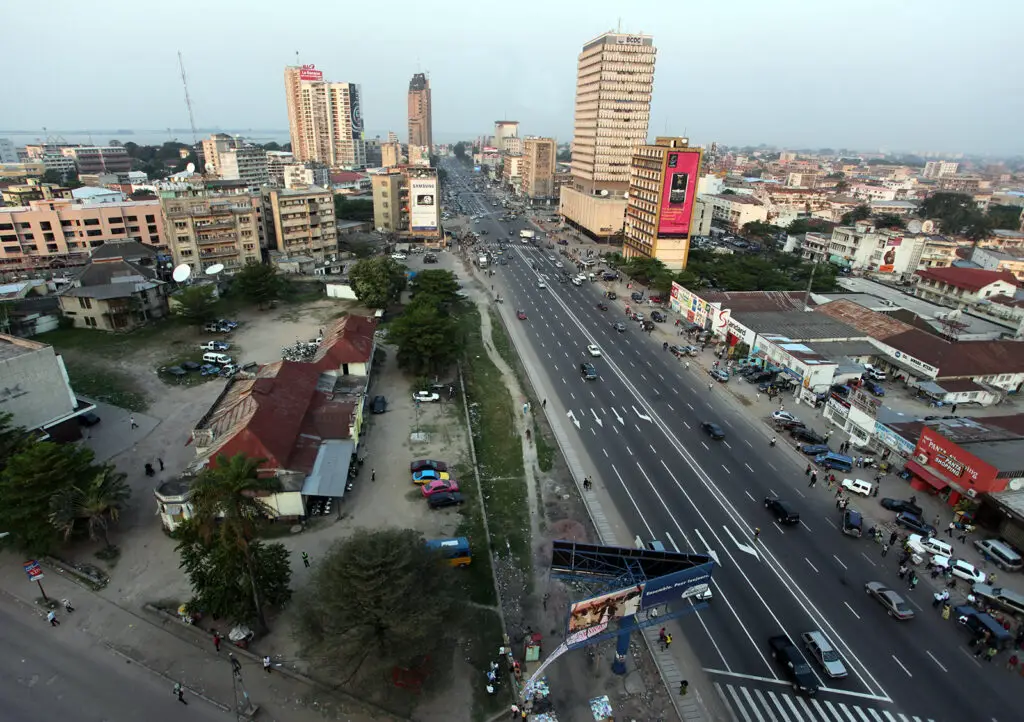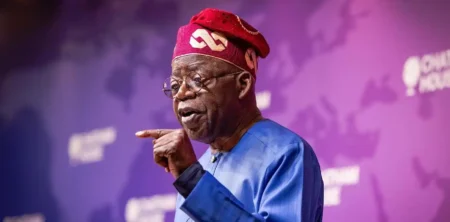- 1.5°C future on the line: Why nations must cut emissions now or lose target
- IMF Growth Forecasts: BRICS to Lead the World in the Next 5 Years
- Vantage Capital seals exit from PickAlbatros Hotels after $18.4M pandemic boost
- Madica backs Earthbond in bold pre-seed bet on sustainable solutions
- Venture capital and debt drive growth in Kenya’s agri-tech sector
- Sustainability Week Africa: Pioneering change amidst climate challenges
- Refugee Crisis in Chad as War and Hunger in Sudan Drive Thousands Across Border
- Senegal 2050: A Blueprint for Economic Transformation
Browsing: West Africa
- Nigeria’s inflation rate has remained high for the past 9 years, way before COVID-19 and the disruptions it imposed.
- Experts have argued that Nigeria’s inflation results from excess money supply in the economic system chasing too few goods.
- Nigeria’s inflation climbed to a new 18-year high in November, matching a record level last seen in 2005.
In 2021, the global economy experienced an inflation surge. This was the first time in many decades that inflation hit double digits in most developed and emerging economies. In the United States, inflation peaked at 9.1 per cent in July 2022, the highest in 40 years.
Such high levels of inflation were unusual and uncomfortable, and the Central Banks in the affected countries tackled it ruthlessly. The applied policy actions paid off and inflation has been moderating fast.
However, what obtains in Nigeria paints a starkly different image from what the rest of the …
- In a significant move by Moody’s Investors Service, Nigeria’s credit rating has been upgraded from stable to positive.
- The devaluation of the Naira and the reduction of the oil subsidy are seen as bold steps towards fiscal responsibility.
- The recent devaluation of the Naira, a significant move by President Bola Tinubu’s administration, carries profound implications for Nigeria’s credit rating.
In a significant move by Moody’s Investors Service, Nigeria’s credit rating has been upgraded from stable to positive. This shift, while not altering the country’s credit rating, marks a potential turning point for the nation’s fiscal and economic health. The December 9th upgrade reflects the Nigerian government’s concerted efforts to stabilize its economy, spearheaded by President Bola Tinubu, amid a complex tapestry of challenges and reforms.
Credit ratings, as determined by agencies like Moody’s, are pivotal in the global economic landscape. They are a barometer for a nation’s creditworthiness, impacting …
- Dubai Ports World (DP World), based in the United Arab Emirates, is rapidly expanding its operations across Africa to become a dominant player in the region’s commerce.
- Establishing a streamlined commerce corridor connecting East Africa and the Great Lakes region is a fundamental plank of DP World’s overall strategy.
- DP World seeks to regulate and strengthen African trade by tackling the difficulties of logistics and storage with cutting-edge digital solutions.
Dubai Ports World in Africa
As the Africa Continental Free Trade Act ushers in a new era of African trade, a significant participant rises from the Arabian Peninsula. Dubai Ports World (DP World), based in the United Arab Emirates, is rapidly expanding its operations across Africa to become a dominant player in the region’s commerce.
The story’s action begins in one of East Africa’s thriving harbours. The vast potential of the Kenyan ports of Mombasa, Lamu, Kisumu, and Naivasha has …
South Africa is set to topple Nigeria and Egypt as Africa's biggest economy in 2024. This is according to forecasts from the International Monetary Fund. According to IMF's World Economic Outlook, South Africa's gross domestic product will reach $401 billion per current price in 2024. On the other hand, Nigeria's GDP will reach $395 billion, with Egypt's GDP reaching $358 billion.
South Africa, the continent's most industrialised nation, is expected to maintain the top spot as Africa's biggest economy for only one year. In 2025, the country will again lag behind Nigeria and fall to third place behind Egypt a year later. This is according to the IMF's World Economic Outlook, a report released last week.…
[elementor-template id="94265"]
- The 1,028km highway will connect economic capitals of five West African countries, part of Ecowas economic block.
- Estimates show the project will cost $15.1 billion and is part of the Trans-African Highway Network.
- ECOWAS Heads of State want to speed up the construction of the highway..
The African Development Bank and the Economic Community of West African States (ECOWAS) Heads of State now want to speed up the construction of the highway between Abidjan and Lagos.
This was realized after the 1st round table of development partners and major regional and international DFIs on the financing of the Construction of the Abidjan–Lagos Corridor Highway, in Abidjan, Côte d’Ivoire.
The round table aimed at providing the main regional and international development finance institutions with the latest information on this major regional project.
Abidjan-Lagos road design
The meeting also served as an awareness-raising platform and “soft market test” for the project, …
- ECOWAS member states fed 22.4 million school-going children in 2022, up from 20 million learners in 2020.
- This represents 42% of the 53 million school children in Sub-Saharan Africa who were fed through school feeding programs last year.
- School feeding intervention, as it happens in Rwanda, can immensely boost agriculture, education, health and nutrition, and social protection sectors.
The past two years have seen West African countries grapple with a number of crises driven by conflict, climate shocks, and a slow recovery from COVID-19 economic fallout worsened by the ongoing Russia-Ukraine war.
The Economic Community of West African States (ECOWAS) member States are, however, defying these tough economic times, emerging as having fed the largest number of school-aged children in Africa.
According to The 2022 State of School Feeding Worldwide report, Ecowas member states fed 22.4 million school-going children in 2022. This was an increase from 20 million children fed
- Central Africa’s economic performance was powered by the DRC, which grew at a jaw-dropping 8.5% in 2022.
- Central Africa growth rate was higher than the African average, which is estimated at 3.8% in 2022, down from 4.8% in 2021.
- The region id projected to settle at 4.9% in 2023 and 4.6% in 2024.
Central Africa achieved real GDP growth of 5.0 per cent in 2022 compared with 3.4 per cent in 2021, as the region posted the strongest performance compared to other regions in the continent.
This was in terms of growth, inflation and budget deficit, a new report by the African Development Bank (AfDB) indicates.
Central Africa oil, minerals and commodities’ wealth
The rebound in economic activity was driven by favourable prices for raw materials. Increasingly, Central Africa economies are turning out to be a net exporter of crude oil, minerals and other commodities.
In comparison, the region’s …
As the 16th president of Nigeria, Bola Ahmed Tinubu has inherited an economy grappling with record-high inflation, enduring unemployment, extreme poverty, crumbling infrastructure and high levels of insecurity. However, Nigeria’s debt situation is a sore thumb among these challenges.
Nigeria’s external debt stock stood at US$41.69 billion in 2022. Multilateral lenders accounted for almost half of this figure, with Eurobonds taking about 38 per cent of Nigeria’s external debt. China’s Exim Bank accounts for US$4.3 billion, or 86 per cent of the $5 billion in bilateral debt.…
In his inaugural address on May 29, President Bola Tinubu stated his plans to revive Nigeria’s ailing economy. After being sworn in as Nigeria’s 16th President, Tinubu expressed his immediate objective to achieve higher GDP of not less than 6 per cent annually and a significant reduction in the unemployment rate.…
- Data centres are IT facilities that manage big organisations’ data. They house state-of-the-art computing infrastructure with very powerful machines.
- The new facility will be built on a part of the former Trade Fair showgrounds site, one of the key central locations in the city.
- This new facility is part of Africa Data Centres’ continental expansion plans spanning 10 of Africa’s major economic hubs.
Africa Data Centres, the largest network of interconnected data centre facilities on the continent, is set to open West Africa’s largest facility in Ghana in the next 12 months. The firm announced it will shortly start construction on its newly acquired land in Accra, Ghana.
The new facility has been designed for an initial 10MW, which can expand to 30MW depending on demand. It will be the largest facility in West Africa to date, outside of Nigeria.
“We continue to bring internationally recognised services and products through …
